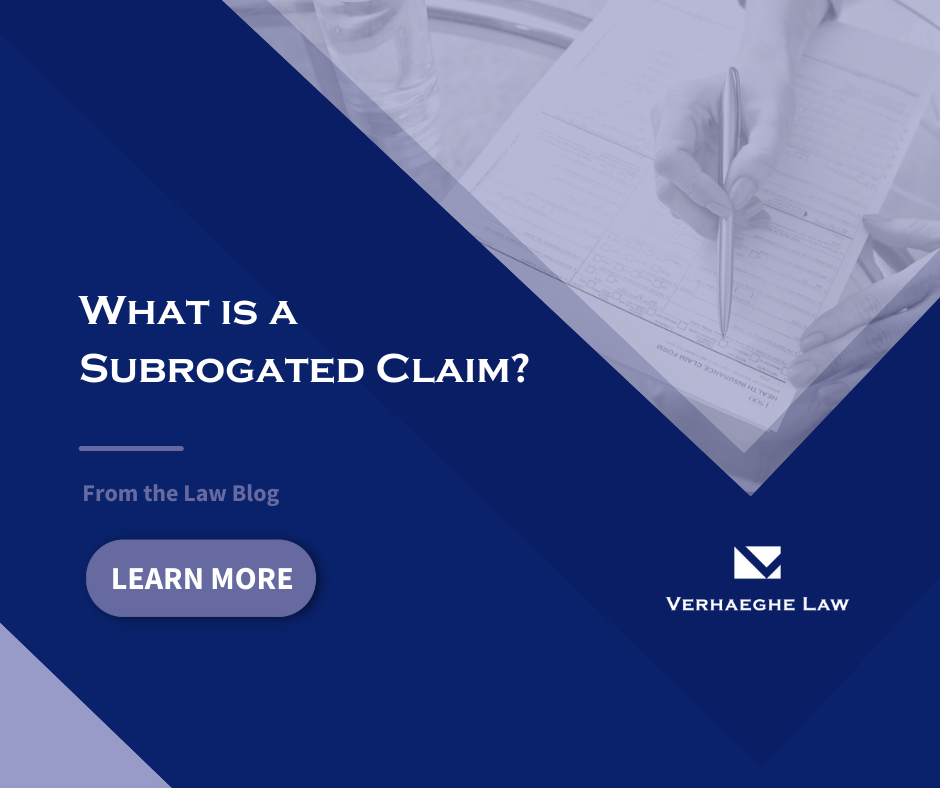What Is A Subrogated Claim?

Generally, an insured accident victim may be able to recover damages directly and immediately from their insurer, without having to sue the person who caused the damage. In relation to this, insurance coverage often includes a provision that allows an insurer - such as an insurance company - to then seek compensation from the person who is liable for the injury and any other harm done to the insured. This is referred to in insurance law as a subrogated claim.
Keep in mind that if you do decide to sue someone in relation to the insured damage, you may be responsible for repaying the insurance payout. Our Edmonton personal injury lawyers may be able to explain whatever you need to know in relation to subrogated claims.
What Is the Point of Subrogation?
Today's insurance schemes involving subrogation developed for a reason. The objectives of subrogation include:
- - ensuring that the insured is compensated promptly
- - shifting the financial loss from the insurer to the wrongdoer in situations where there is a wrongdoer
- - reducing the cost of insurance by enabling insurers to recoup some losses.
The Crown's Right to Subrogation for Healthcare Expenses
In Alberta, the province is the primary healthcare insurer. As such, it can make a subrogated claim whenever someone causes an injury or illness that results in the provision of health services in the province.
Health services costs that may be recoverable by the province include:
- - ambulance costs
- - in-hospital treatment
- - diagnostic costs
- - out-patient services
- - specified devices or aids
- - medications
- - mental health treatment
In general, the province is limited to recovery from a wrongdoer in cases that do not involve motor vehicle accidents. This is because there is a separate system in place to compensate the Crown for health services costs caused by motor vehicle accidents.
Motor Vehicle Accidents
In Alberta, the Insurance Act was recently amended to establish a system of direct compensation for property damage. This means that your insurance company is no longer able to make a subrogated claim against an at-fault driver, at least with respect to property damage caused in an accident.
Personal injury related expenses arising from a motor vehicle accident may still be subrogated. If you are injured in an accident, your insurance company may pay your benefits and pursue compensation from the insurer of the at-fault driver or drivers, if applicable. This is built into the province's insurance scheme and not something with which individual drivers often become involved.
However, if you are seriously injured in a motor vehicle accident and decide to sue the at-fault driver personally, your own insurer may make a subrogated claim in relation to benefits they may have already paid on your behalf. Typically, individual drivers only start a personal injury claim when they are very badly injured and the capped amounts of their insurance benefits will not be sufficient to compensate them for the damages.
Contact Our Edmonton Personal Injury Lawyers Today for a Consultation
While some of the more common examples of subrogation involve personal injury, it is a part of most insurance coverage, including home and property insurance, as well as liability insurance coverage. If you have more questions related to subrogated claims, we may be able to help. Contact us today to speak with our Edmonton personal injury lawyers.
*Please be advised that the information in this article is not intended as legal advice, but as an introductory overview on a legal subject. Please consult with a lawyer for legal advice.
